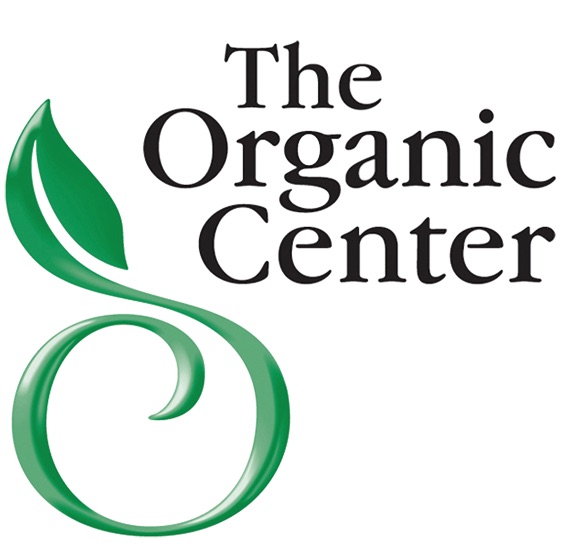
The Effects of a Much More Competitive Environment in the Organic Industry are Being Seen
* The big takeaway from Expo East 2018 was something that I had yet to witness in my many years of covering the industry — a good number of brands appear to be struggling.
In each category, there are a handful of established and/or leading brands that are doing well, but the industry’s overall success, a growing emphasis on healthy eating, and a tremendous amount of investment capital moving into this area have all made organic an incredibly competitive space.
And the effects of operating in this ultra-competitive environment are starting to be felt, with highly regarded brands losing key distribution from major accounts, some of which resulted in excellent products being discontinued altogether.
After speaking to long-time industry executives and buyers at the show, the phrase that I heard repeatedly was that “brands are not staying in their lanes.”
What does that mean?
Up until a few years ago, when things were not as competitive, brands had their core set of products and rarely deviated from what they did best. Essentially, they “stayed in their lane” and did not encroach on others.
Now, companies are not “staying in their lane” and are moving into product categories that are not the core foundation of the brand. Of course, any brand has the right to move in any direction that it chooses, but this is contributing to categories becoming more crowded and margin pressure. Furthermore, retailers only have so much shelf space and if a product is not selling, it will get replaced.
What this all points to is that execution must be better than ever, and there must be a clear and well-financed plan to get innovative products into the hands of consumers, whether that is via traditional retail channels or online.
This is not a doom and gloom scenario, but organic brands need to prepare for an increasingly competitive operating environment. As I witnessed at Expo East, times are very different now than they were a few years ago.
* Not surprisingly, CBD was everywhere in Baltimore. However, there is tremendous confusion among consumers about which ones are high quality and which ones are not, particularly since so few CBD products are USDA certified organic.
I also heard rumors in Baltimore about companies running into problems with getting USDA organic certification for their CBD products — something that I am in the process of investigating deeper.
* Sparkling continues to be an enormous trend, even in hydrogen water and sports drinks. The plant-based category is on fire and continues to deliver some fantastic innovation. Products that focus on improving sleep are very on trend and will only grow in number and importance.
* One of the issues that Organic Insider has been heavily focused on over the past few years has been fraudulent organic grains from abroad.
With the emergence of blockchain as an obvious solution to this problem, I went to a blockchain panel session with executives from Walmart and Pipeline Foods, along with Jenny Tucker, Deputy Administrator of the USDA’s National Organic Program.
While blockchain is a great tool to fight fraudulent organic products, what is more critical is making sure that the data which gets entered into the blockchain is clean and reliable. This whole system is worthless if a very secure blockchain is storing unreliable or inaccurate data.
Given how the organic industry is structured, getting clean data from third-world countries is not an easy or uncomplicated task. Yet, one possible way to get accurate data is through a method called mass balancing — a topic that I will be delving into in a future Organic Insider.

* I loved what Organic Valley was doing at its booth. The company had a giant iPhone and was allowing people to FaceTime with farmers on actual Organic Valley farms. Very cool!

I loved the positive messages from YourSuper.com, a new superfood brand.

* On Living Maxwell, I just put up my Top 5 Organic Products from Expo East 2018.
* Lastly, with hurricane Florence hitting the East Coast, many attendees canceled their travel plans and did not attend the show. While the weather ended up not being a factor in Baltimore — we only got very small amounts of rain — the crowds were definitely smaller than a normal Expo East.
Nevertheless, many brands that I spoke to said that even with less of a turnout, it ended up being a productive show.
 |
Have a great day! 
Max Goldberg, Founder |
Quick Hits
* Congrats to organic baking company Foodstirs, who became the first nationally distributed organic food brand to receive Glyphosate Residue-Free certification! See my article on Living Maxwell for more details.
* Center for Food Safety has launched endindustrialmeat.org
* France has not only banned neonicotinoid pesticides, but it is now trying to ban plastic bottles in schools.
* Friends of the Earth just released a report called Gene-Edited Organisms in Agriculture: Risks and Unexpected Consequences, and ETC Group just released a report called Genetically Engineered Clothes: Synthetic Biology’s New Spin on Fast Fashion.
* California now requires that plant-based options be served in state healthcare facilities and prisons.
* Welund North America is a private intelligence firm that keeps tabs on environmental activists for big oil and gas companies. There should be little doubt that organic food activists are being constantly spied on and tracked as well.
* Next month, the fall National Organic Standards Board meeting will be held in St. Paul, Minnesota from October 24-26, and the meeting’s agenda has just been posted.
* In the Hudson Yards development in New York City, the California organic meat company Belcampo will have its first East Coast restaurant.
* The Detox Market, a retailer of organic and natural beauty care products, has opened in NYC.
* GMO Propaganda of the Week — Bill Gates making the case for the need for GMOs in Africa, despite the fact that many African agricultural experts do not want them.
* If you are a current paying subscriber and did not see last week’s announcement about Organic Insider going Freemium (free and premium), please make sure that you read this.
Weekly News Summaries


Industry Veteran John Foraker Discusses All Things Organic
By Megan Poinski
Great read! A fascinating and in-depth interview with John Foraker, one of the most accomplished and admired executives in the organic food industry today.

A Deep Dive into the GMO-Labeling Lawsuit Against the USDA
By Dan Flynn
A detailed look into what is going with the lawsuit that the Center for Food Safety and the Center for Environmental Health have filed against the USDA for failing to enact federal GMO-labeling standards.

Under Amazon, Prices at Whole Foods Have Barely Gone Down
By Andria Cheng
In a new study out by research firm Gordon Haskett, which looked at seven pricing studies of a basket of 108 items over the past year, it was found that prices at Whole Foods have gone down by only 0.8% since the Amazon acquisition.

Coca-Cola Acquires Organic Kombucha Brand
By Rachel Arthur
Coca-Cola has purchased Australia's Organic & Raw Trading Co., which produces MOJO, the country's leading brand of organic kombucha.


Financing America's Organic Farms
By Lela Nargi
A fascinating look at Iroquois Valley Farms, a socially conscious investment firm that is playing an important role in sustaining and funding organic farms throughout the U.S.

Big Win! Glyphosate Advocates Fail to Cut Off Funding to IARC
When the International Agency for Research on Cancer (IARC) classified glyphosate as a probable human carcinogen in 2015, U.S. politicians threatened to cut off funding for the agency. However, their recent attempts of doing so just failed.

Study: How Organic Agriculture Can Reduce Occupational Hazards for Farmworkers
By Jessica Shade, PhD and Tracy Misiewicz, PhD
The Organic Center just came out with a study that looks at the hazards of toxic synthetic pesticides to farmers and how organic farming methods can reduce the health risks to these workers.


An Organic Farmer from Virginia is Running for the U.S. House of Representatives
By Sarah Jones
Anthony Flaccavento, who founded a consulting firm that advises communities on building farmers’ markets and supporting organic agriculture, is hoping to land a seat in the U.S. House of Representatives.

Premium, Certified Organic Cannabis Brand is Launched in Canada
Publicly-traded The Green Organic Dutchman has just come out with its own premium, certified organic line of cannabis.
The Whole Foods of France?
By Robert Williams and Albertina Torsoli
Monoprix, a high-margin retailer, has partnered with Amazon and is aiming to become the Whole Foods of France.
The material in this newsletter is copyrighted and may be reprinted by permission only. All requests must be in writing. Please use our contact form to request republication rights.
Newsletter Archive
Quick Hits
* Congrats to organic baking company Foodstirs, who became the first nationally distributed organic food brand to receive Glyphosate Residue-Free certification! See my article on Living Maxwell for more details.
* Center for Food Safety has launched endindustrialmeat.org
* France has not only banned neonicotinoid pesticides, but it is now trying to ban plastic bottles in schools.
* Friends of the Earth just released a report called Gene-Edited Organisms in Agriculture: Risks and Unexpected Consequences, and ETC Group just released a report called Genetically Engineered Clothes: Synthetic Biology’s New Spin on Fast Fashion.
* California now requires that plant-based options be served in state healthcare facilities and prisons.
* Welund North America is a private intelligence firm that keeps tabs on environmental activists for big oil and gas companies. There should be little doubt that organic food activists are being constantly spied on and tracked as well.
* Next month, the fall National Organic Standards Board meeting will be held in St. Paul, Minnesota from October 24-26, and the meeting’s agenda has just been posted.
* In the Hudson Yards development in New York City, the California organic meat company Belcampo will have its first East Coast restaurant.
* The Detox Market, a retailer of organic and natural beauty care products, has opened in NYC.
* GMO Propaganda of the Week — Bill Gates making the case for the need for GMOs in Africa, despite the fact that many African agricultural experts do not want them.
* If you are a current paying subscriber and did not see last week’s announcement about Organic Insider going Freemium (free and premium), please make sure that you read this.
